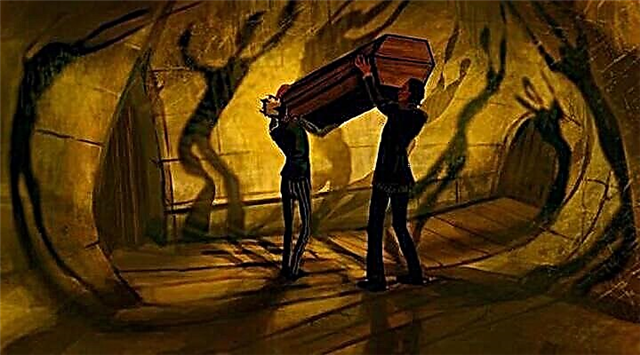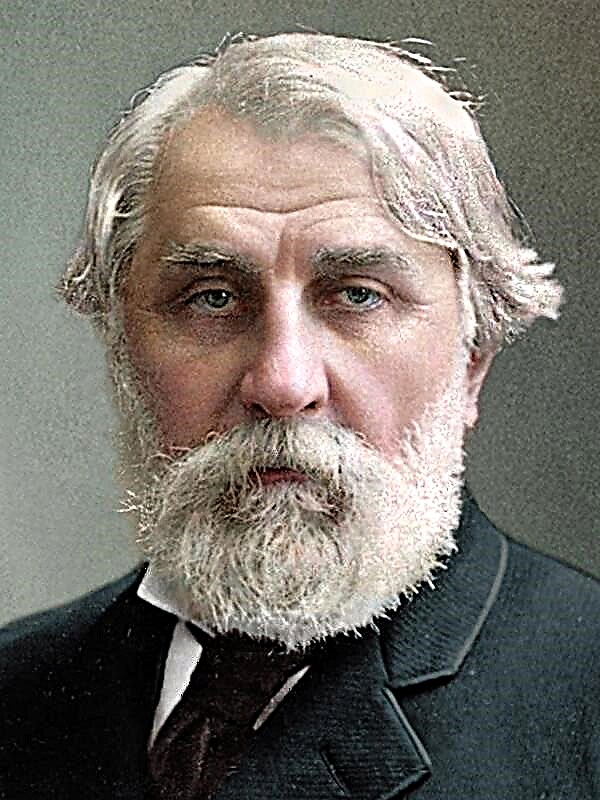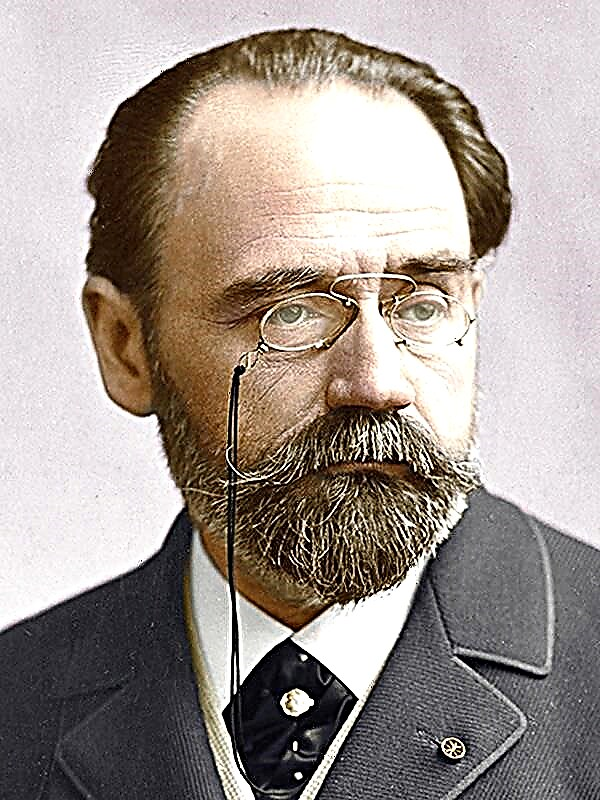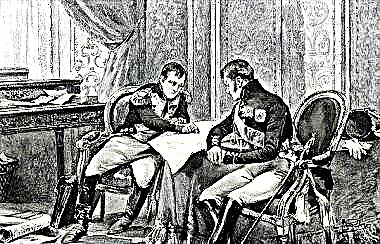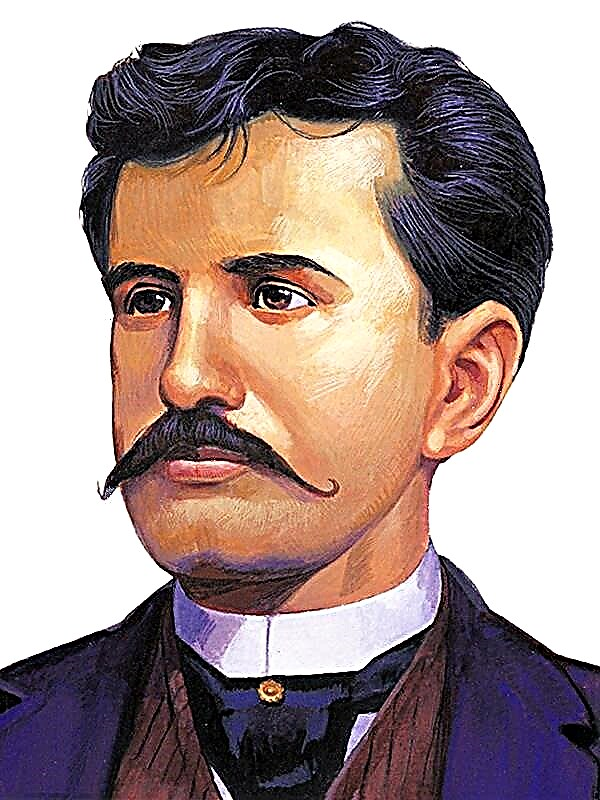The most powerful king in the last generation of Greek heroes was Agamemnon, ruler of Argos. It was he who ruled over all the Greek troops in the Trojan War, quarreled and put up with Achilles in the Iliad, and then defeated and ruined Troy. But his fate was terrible, and the fate of his son Orestes - even worse. They had to commit crimes and pay for crimes - their own and others.
Agamemnon's father Atreus fiercely fought for power with his brother Fiesta. In this fight, Fiesta seduced the wife of Atreus, and Atreus killed the two little children of Fiesta for this and fed their father who had no idea about them with meat. (About this cannibalistic feast, then Seneca will write the tragedy "Fiesta".) For this, a terrible curse fell on Atreus and his family. The third son of Fiesta, named Aegisthus, escaped and grew up in a foreign land, thinking only about one thing: revenge for his father.
Atreus had two sons: the heroes of the Trojan War Agamemnon and Menelaus. They married two sisters: Menelaus - on Helen, Agamemnon - on Clytemnestra (or Klitemester). When the Trojan War broke out over Helena, Greek troops under the command of Agamemnon gathered to sail to the harbor of Avlida. Here they had an ambiguous sign: two eagles tore the pregnant hare. The fortuneteller said: two kings will take Troy, full of treasures, but they cannot escape the wrath of the goddess Artemis, the patroness of pregnant women and women in childbirth. Indeed, Artemis sends nasty winds on Greek ships, and in redemption requires a human sacrifice - young Iphigenia, daughter of Agamemnon and Clytemnestra. The duty of a leader conquers in Agamemnon the feelings of his father; he gives Iphigenia to death. (He will write the tragedy of Euripides about what happened with Iphigenia.) The Greeks set sail under Troy, and Klimnestra, mother of Iphigenia, remained in Argos, thinking only of one thing - revenge for her daughter.
Two avengers find each other: Aegisthus and Clytemnestra become lovers, and for ten years, while the war continues, they are waiting for Agamemnon to return. Finally, Agamemnon returns, triumphing, and then revenge overtakes him. When he is washed in the bath, Clytemnestra and Aegisthus throw a veil over him and hit him with an ax. After that, they rule in Argos as king and queen. But Orestes, the little son of Agamemnon and Clytemnestra, survives: the feeling of his mother defeats the avenger’s calculation in Klitemnestra, she sends him to a foreign land so that Aegisthus would not destroy his father and son. Orestes grows in the distant Phocis, thinking only about one thing - about revenge for Agamemnon. For his father, he must kill his mother; he is scared, but the prophetic god Apollo imperiously says to him: "This is your duty."
Orestes has grown and comes to take revenge. With him, his Phocian friend Pilad - their names became inextricable in myth. They pretend to be travelers who brought the news at once sad and joyful: as if Orestes had died in a foreign land, as if Aegisthus and Clytemnestra were no longer in danger of revenge. They are admitted to the king and the queen, and here Orestes fulfills his terrible duty: first he kills the stepfather, and then the mother.
Who will now continue this chain of deaths, who will avenge Orestes? Aegisthus with Clytemnestra did not have avenger children. And then the goddess of vengeance, the monstrous Erinnia, take up arms against Orestes; they send madness on him, he rushes about in desperation all over Greece and finally falls to the god Apollo: "You sent me to revenge, you save me from revenge." God opposes the goddesses: they are for the ancient belief that maternal kinship is more important than fatherly, he is for a new belief that fatherly kinship is more important than maternal. Who will judge the gods? People.In Athens, under the supervision of the goddess Athena (she is a woman like Erinnia, and she is courageous like Apollon), the court of elders gathers and decides: Orestes is right, he must be cleansed of sin, and the Erinnia, in order to propitiate them, will be erected a sanctuary in Athens. , where they will be honored under the name Eumenes, which means "Good Goddesses."
Based on these myths, the playwright Aeschylus also wrote his trilogy Oresteia - three tragedies that continue each other: Agamemnon, Hoofory, Eumenides.
Agamemnon is the longest tragedy of the three. It starts unusual. In Argos, on the flat roof of the royal palace, a sentinel slave lies and looks at the horizon: when Troy falls, a fire will be lit on the mountain nearest to her, they will see him across the sea on another mountain and light a second, then a third, and so the fiery message will reach Argos: victory won, Agamemnon will be home soon. He has been waiting without sleep for ten years under the heat and cold - and now the fire breaks out, the sentinel jumps up and runs to notify Queen Clytemnestra, although he feels this news is not good.
A chorus of Argos elders enters: they still don’t know anything. In a long song, they recall all the scourges of war - both the perfidy of Paris, the betrayal of Helena, the sacrifice of Iphigenia, and the current unrighteous power in Argos: why all this? It can be seen that this is the world law: without suffering, you will not learn. They repeat the refrain:
“Woe, woe, alas! but good, may there be victory. ” And the prayer seems to come true: Clytemnestra leaves the palace and announces: “Good is victory!” “Troy has been taken, the heroes are returning, and whoever is righteous is given a good return, and whoever is sinful is unkind.”
The chorus responds with a new song: in it, thanks to the gods for victory and anxiety for the victorious leaders. Because it is difficult to be righteous - observe the measure: Troy fell for pride, now we would not fall into pride ourselves: small happiness is more true than great. And for sure: the messenger of Agamemnon appears, confirms the victory, commemorates ten years of torment under Troy and talks about the storm on the way back, when the whole sea “bloomed with corpses” - it can be seen that there were many unrighteous. But Agamemnon is alive, approaching and great, like a god. The choir once again sings how guilt will give birth to guilt, and again curses the instigator of the war - Elena, the sister of Clytemnestra.
And finally, Agamemnon enters with the captives. He really is great, like a god: “There is a victory with me: be it with me here too!” Clytemnestra, bending over, weaves a purple carpet over to him. He recoils: "I am a man, and only God is honored with purple." But she quickly persuades him, and Agamemnon enters the palace in purple, and Clytemnestra enters after him with an ambiguous prayer: “O Zeus the Finisher, accomplish everything I pray for!” Measure exceeded: retribution is nearing. The choir sings about a vague apprehension of trouble. And he hears an unexpected response: the captive of Agamemnon, the Trojan princess Cassandra remained on the scene, Apollo once loved her and gave her the gift of prophecy, but she rejected Apollo, and no one believes her prophecies. Now she screams in abrupt cries about the past and future of the Argos house: a massacre, eaten babies, a net and an ax, drunken blood, her own death, Erinniy's choir and son, who executed his mother! Horu is scared. And then from behind the scene Agamemnon groans: “Oh, horror!” in his own house an ax is struck! .. Oh woe to me! another blow: life is leaving. " What to do?
In the inner chambers of the palace are the corpses of Agamemnon and Cassandra, above them is Clytemnestra. “I lied, I was cunning - now I'm telling the truth. Instead of secret hatred - open revenge: for the murdered daughter, for the captive concubine. And the revenge of Erinnia is for me! ” Horror in horror cries for the king and curses the villain: the demon of revenge settled in the house, there is no end to trouble. Aegisthus stands next to Clytemnestra: “My strength, my truth, my revenge for Fiesta and his children!” The elders from the choir go to Aegisthus with drawn swords, Aegisthus calls the guard, Clytemnestra pulls them apart: “So great is the harvest of death - let the weak bark, and our business is to reign!” The first tragedy is the end.
The action of the second tragedy is eight years later: Orestes grew up and, accompanied by Pilad, comes to take revenge.He bends over the tomb of Agamemnon and puts a cut strand of his hair on it as a sign of fidelity. And then he hides because he sees the approaching choir.
These are hohephors, performers of libations, - tragedy is called by them. A libation of water, wine and honey was made on the graves to honor the dead. Clytemnestra continues to be afraid of Agamemnon and the dead, she has terrible dreams, so she sent here with the libations of her slaves, led by Elektra, the sister of Orestes. They love Agamemnon, they hate Clytemnestra and Aegisthus, yearning for Orestes: “May I not be like my mother,” Electra prays, “and may Orestes return to avenge his father!” But maybe he has already returned? Here is a strand of hair on the grave - color in color with Electra's hair; here is a footprint in front of the grave - a trace in the footprint of Electra. Electra with Hoephor does not know what to think. And then Orestes comes out to them.
Recognition is quick: of course, at first Electra does not believe, but Orestes shows her: “Here is my hair: put a lock on my head and you will see where it is cut off; here is my cloak - you yourself weaved it to me when I was a child. ” Brother and sister hug each other: “We are together, the truth is with us, and Zeus is above us!” The truth of Zeus, the commandment of Apollo and the will to revenge unite them against a common offender - Clytemnestra and her Aegisthus. Echoing with the choir, they pray to the gods for help. Clytemnestra dreamed that she had given birth to a snake and the snake stung her in the chest. May this dream come true! Orestes tells Electra and the choir how he will penetrate the palace to the evil queen; the choir responds with a song about the evil women of the past - about wives who, out of jealousy, killed all the men on the island of Lemnos, about Skilla, for the sake of the lover of the deceased father, about Alfey, who, avenging her brothers, plagued her own son.
The embodiment of the plan begins: Orestes and Pilad, dressed as wanderers, knock on the palace. Clytemnestra goes to them. “I passed through Phocis,” says Orestes, “and they told me: tell Argos that Orestes is dead; if they want, let them send for dust. ” Clytemnestra cries out: she pity her son, she wanted to save him from Aegisthus, but she did not save him from death. Unrecognized Orestes with Pilad enter the house. The growth of tragedy is interrupted by an almost comic episode: the old nanny Oresta cries in front of the choir, as she loved him as a baby, and fed and watered and washed the diapers, and now he is dead. “Don’t cry - maybe he didn’t die!” - the eldest in the choir tells her. The hour is near, the choir calls out to Zeus: “Help!”; to the ancestors: "Change anger to mercy!"; to Orestes: “Be firm! if the mother cries out: “son!” - you answer her: “father!”
Is Aegisthus: Believe or Not Believe the News? He enters the palace, the choir freezes, and a blow and a moan come from the palace. Clytemnestra runs out, followed by Orestes with a sword and Pilad. She opens her chest: “Have pity! I fed you with this breast, I cradled you at this breast. ” Orestes is scared. "Pilad, what to do?" He asks. And Pilad, who had not said a word before, said: “And the will of Apollo? and your oaths? ” More Orestes does not hesitate. “It was fate that judged me to kill my husband!” Cries Clytemnestra. “And you — to me,” Orestes replies. "You son will kill me mother?" “You're your own killer.” “Mother’s blood will take revenge on you!” “Father’s blood is worse.” Orestes leads his mother into the house - to be executed. The choir in dismay sings: “The will of Apollo is a mortal law; evil will soon pass. ”
The inside of the palace is revealed, the corpses of Clytemnestra and Aegisthus lie, above them is Orestes, stunning with the bloody cover of Agamemnon. He already feels the insane approach of Erinnius. He says: “Apollo ordered me, avenging my father, to kill my mother; Apollo promised me to cleanse me from bloody sin. As a petitioner with an olive branch in my hands, I will go to his altar; and you be witnesses of my grief. " He runs away, the choir sings: "Will there be something?" This ends the second tragedy.
The third tragedy, the Eumenides, begins in front of the Temple of Apollo at Delphi, where the middle of the earth’s circle; this temple belonged first to Gaia-Earth, then to Themis-Justice, now Apollo the Broadcaster. At the altar there is Orestes with the sword and the olive branch of the petitioner; around the choir of Erinnius, daughters of the Night, black and monstrous. They sleep: it was Apollo who brought a dream to them to rescue Orestes. Apollo tells him: "Run, cross the land and sea, appear in Athens, there will be judgment." "Remember me!" - Orest prays. “I remember,” Apollo answers. Orestes runs away.
Is the shadow of Clytemnestra.She appeals to the Erinnias: “Here is my wound, here is my blood, and you are sleeping: where is your vengeance?” Erinnia awaken and chorus Apollo: “You save the sinner, you destroy the eternal Truth, the younger gods trample the elders!” Apollo accepts the challenge: there is a first, still short debate. "He killed the mother!" “And she killed her husband.” - “Husband to wife is not native blood: swearing is worse than courage.” - “Husband to wife - native to the law, mother’s son - native to nature; and the law is everywhere uniform, and not holier in nature than in the family and society. So Zeus laid, having entered into a legal marriage with his Hero. " “Well, you are with the young gods, we are with the old!” And they rush away to Athens: Erinnia - to destroy Orestes, Apollo - to save Orestes.
The action is transferred to Athens: Orestes sits in front of the temple of the goddess, hugging her idol, and appeals to her court, Erinnia sings a famous “astringent song” around him: “We observe the bloody law: whoever sheds his own blood must pay his own; otherwise there will be no kind! He run - we follow him; he is in Hades - we are after him; here is the voice of the old Truth! ” Athena appears from the temple:
“It is not for me to judge you: whom I condemn, he will become an enemy of the Athenians, but I do not want this; let the best of the Athenians decide for themselves, make their own choice. ” Chorus in alarm: what will people decide? Will the ancient order fail?
Judges come out - the Athenian elders; behind them is Athena, in front of them is on one side Erinnia, on the other, Orestes and his mentor Apollo. The second, main argument begins. "You killed your mother." “And she killed her husband.” “Husband to wife is not native blood.” - "I am such a mother - also not native blood." - “He renounced kinship!” - “And he is right,” Apollo intervenes, “the father is closer to the son than the mother: the father begets the fruit, the mother only grows him in the womb. A father can give birth without a mother: here is Athena, born without a mother from the head of Zeus! ” “Judge,” Athena tells the elders. One by one they vote, dropping the pebbles into the bowls: into the bowl of condemnation, into the bowl of justification. They count: the voices were divided equally. “Then I give my voice,” Athena says, “and I give for an excuse: mercy is above bitterness, male relationship is higher than female.” Since then, in all centuries in an Athens court, with equal votes, the defendant was considered acquitted - “the voice of Athena”.
Apollo with victory, Orest gratefully leave the scene. Before Athena remain Erinnii. They are in a frenzy: ancient foundations are crumbling, people are violating tribal laws, how to punish them? Should hunger, plague, death be sent to the Athenians? “No need,” Athena assures them. - Mercy is above bitterness: send fertility to the Athenian land, large families to the Athenian families, a fortress to the Athenian state. Tribal revenge undermines the state from within with a chain of murders, and the state must be durable in order to confront external enemies. Be merciful to the Athenians, and the Athenians will forever honor you as the “Good Goddesses” - Eumenides. And your sanctuary will be between the hill where my temple stands and the hill where this court judges. ” And the choir gradually pacifies, accepts a new honor, blesses the Athenian land: “Get out the strife, let there be no blood for blood, let there be joy for joy, let everyone rally around common affairs, against common enemies.” And not by the Erinnia, but by the Eumenes, under the leadership of Athena, the choir leaves the stage.



